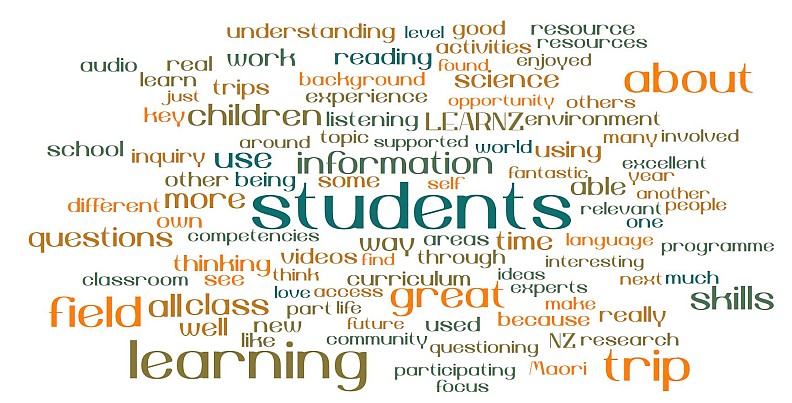You can contact LEARNZ, part of CORE Education, at:
Postal Address:
PO Box 13 678,
Christchurch 8141,
New Zealand

It helped students to see the key competencies in action in a real life situation outside of the classroom.
Fitted in well with our civil defence week. Engaged the students. Have recommended to colleagues and our whole team will use this next year.
My class enjoyed the little videos and learnt heaps about earthquakes. Linked well to managing self and community. It involves the children with things outside the classroom - connects them to real life NZ.
My multi-levelled students thoroughly enjoyed participating in watching the movies and learning through accessing the background pages and quizzes. LEARNZ is a great package of information and up to date footage, that makes usage and planning of the unit very easy for me as a teacher.
This field trip most definitely supported our students in becoming lifelong learners, who develop skills and strategies for real-life situations. Everything is well-researched and my Year 6-8 students and I particularly enjoy the presentation of the video clips.
Allowed us look at geology as well as Civil Defence. Appropriate and effective.
All New Zealanders need to know this info - new immigrants were quite surprised by some of it. Ticks all of the boxes. Allows my diverse learners to engage in their own style with the material, which frees me up to move around and have quality conversations about the topic with each of the students - no crowd control needed! Brilliant!
I found the easy background pages appropriate for most students and the ability to have the text read to them was really helpful. Motivating and interesting - my Year 4 students especially enjoyed the videos.
Direct connection to what we were studying in our syndicate, all resources in one place, real people and real context helped engage the children in the learning. All resources are New Zealand appropriate and very suitable for my Year 5&6 class. I felt very supported with instant responses to the emails I sent.
The resources were excellent for research and reading tasks, and we learnt the importance of being prepared as we practiced our earthquake drills. Everything supported our unit of inquiry about natural disasters specific to New Zealand and my students valued being able to speak to experts in the field.
This was effective, interesting and aimed at the students' ability, with interesting quizzes too. Students learned a lot and they enjoyed the videos, which generated a lot of discussion. It was good not to be the one imparting the information, to have experts explain how things happen.
Learnz virtual field trips are an integral part of our programme - students look forward to each one. What's the Plan, Stan? led to research around a range of topics - particularly in response to Web Conferences. Special needs students can access ALL aspects of the tour. Maori students are able to add context and their own ideas and understanding, from talks by representatives of local iwi.
The field trips cater for a number of learning styles providing visual, written and audio information. I love using Learnz with my class. Thank you for providing this fabulous resource.
I adapted it to be useful for my Year One class. I concentrated on How to keep ourselves safe during Earthquakes and Tsunamis. It assisted my delivery of interesting authentic material for my students.
LEARNZ supports all areas of NZC - a wonderful resource!
Fantastic resource that our class really enjoyed once again. Thank you. Great planning guide. Easy to use and informative.
It was well organised and at the students' levels so no-one was left behind. They now have a good understanding of what to do next in the case of an emergency.
It made my children more aware that floods, earthquakes and other natural disasters don't just happen to other people in other places but can happen anywhere at anytime. Thank you, I am enjoying learning along with my class!
Very appropriate and engaging both due to the focus of the unit and the delivery. Extremely motivating for the students learning. Great to have the personal touch where the children get to interact with Andrew. Very relevant and future focused.
Was an awesome collaborative and digital experience for chn.
Helped to get students actively involved and participating in science and suitability projects.
Kererū Count was of benefit to me as a teacher to enhance engagement with Maori students in science at both the junior year 9 and senior year 12 class. I also used this field trip with my classes to tie in with DOC Conservation Week.
It supported teaching about the principles and values of the NZC for this group of 5-10 year old students, who are a part of the school's environmental team. It has been a driver for these students to form connections with those experts in our community who can support their projects, such as biosecurity officers at the regional council and local iwi.
For my NZ students currently living overseas, it was most effective in raising their awareness of fauna back home and actions some people have taken to help kerer.
Great. We used it to plan our own Kereru Count field trip.